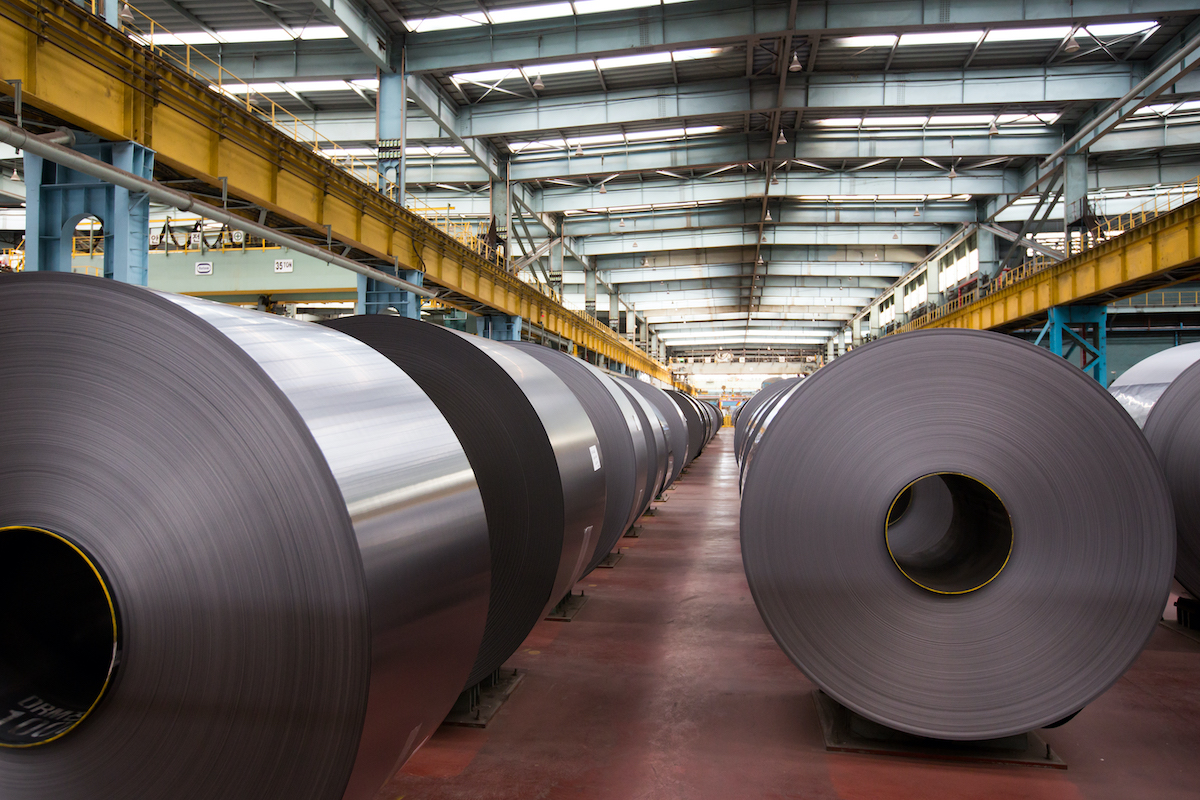Indian flat steel volumes are vastly dominating European import levels, with most quotas for Indian flats already exhausted, according to European Commission data Oct. 7.
The Indian hot-rolled coil quota for October-December totaling 169,717 mt, cold-rolled coil quota totaling 150,937 mt and quota tally for hot-dipped galvanized category 4a of 49,651 mt were already exhausted.
Data showed that 34,478 mt of Indian hot-dipped galvanized category 4b was remaining out of a total country-specific quota of 70,874 mt, while approximately 780 mt was awaiting allocation as of 4:30 pm London time on Oct. 7.
For the Russian HRC country specific quota, 264,169 mt remained out of a total of approximately 416,848 mt, while 15,781 mt was awaiting allocation.
For Turkish HRC, 125,622 mt remained out of a total quota of approximately 330,388 mt while around 25,041 mt was awaiting allocation on Oct. 7 as of 4:30 pm London time.
Indian flats steel products seemed to have dominated the import quota into the EU for the October-December period.
“I was surprised by the Turkish quota. I was expecting it to be higher, but it looks like it isn’t being allocated that fast,” one European trader told S&P Global Platts. “The tonnage was lower than expected and India is super high as expected. The HDG quota is even worse and there are not many offers in the domestic market so the prices should be strong.”
Platts assessed Northwest European hot-rolled coil stable at Eur1,047.50/mt ($1,211.53mt) ex-works Ruhr on Oct. 7.
Indian HRC total import volumes awaiting allocation totaled 205,034 mt, around 121% of total quota, on Oct. 5, exceeding country-specific quota of 169,717 mt. Similarly, Indian HDG 4a import volumes stood at 182,438 mt on Oct. 5, approximately 367.5% of quota tally of 49,638 mt.
Rebar import quotas
In line with most Indian flat steel products, Turkish rebar imports showed a similar trend on the longs steel side. The country specific quota for Turkish rebar imports into the EU was already exhausted, EC data showed.
Sources reported that Turkish mills have sold around 110,000 mt rebar to Europe over the last three months, exceeding its country-specific quota. Therefore, even though, total quota tally for Turkish-origin rebar imports into the EU of 61,938 mt was already by Oct. 5, approximately 434 mt was awaiting allocation around 4:30 pm London time on Oct. 7, in addition to 5,047 mt which was awaiting allocation at 05:30 pm London time on Oct. 6, following exhaustion of total country quota.
“I think the figures are clear, we have to pay,” another EU trader said.
The trader said he would no longer buy from Turkish mills.
“We will see how many European buyers will be keen to take the risk,” he said. “The best would be for the Turkish organize themselves to share the quota on their end so that they don’t oversell globally to EU buyers.”
The volumes which will not be cleared during October-December period will be stored at ports awaiting allocation during the January-March 2022 period, where buyers are expected to pay storage costs.
“This has probably happened, and volumes are at the port for January, for sure,” the trading source said, adding, “Storage costs are nothing compared to [antidumping] duty.”
Platts assessed Turkish exported rebar at $672.50/mt FOB Turkey Oct. 7, up $2.50/mt on day.
Approximately 33,488 mt of the total October-December quota of 59,963 mt for Russian-origin rebar remained on Oct. 7, while 1,349 mt awaited allocation.
— Rabia Arif, Amanda Flint






